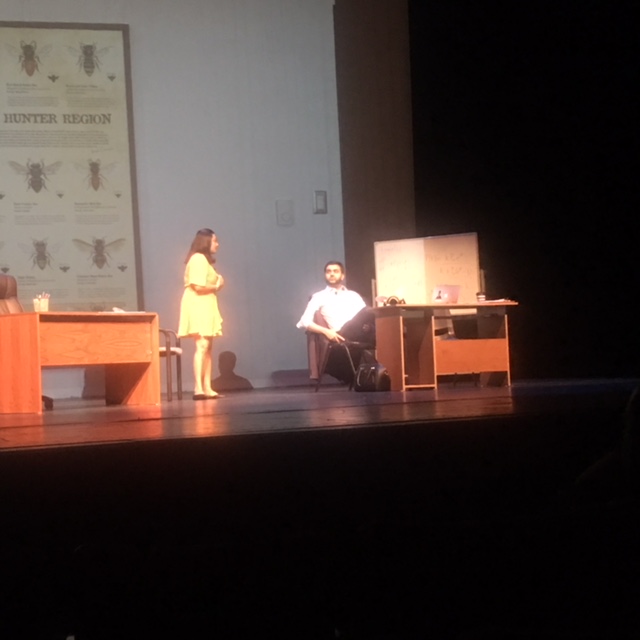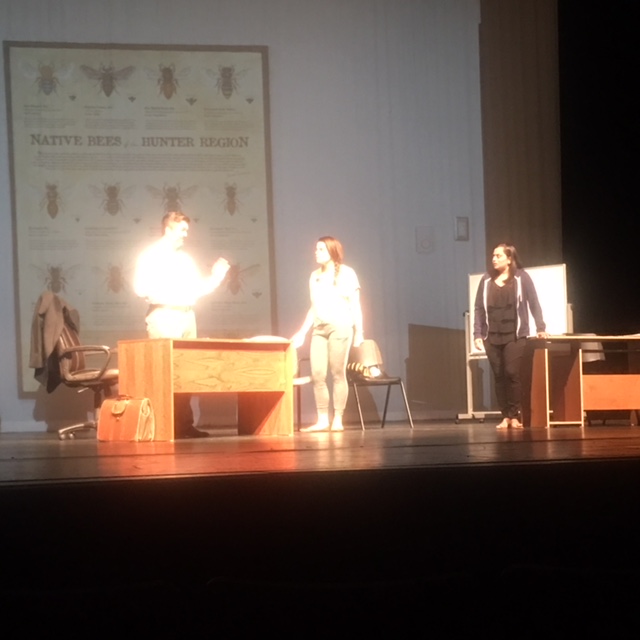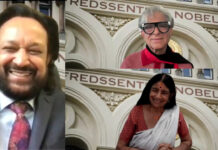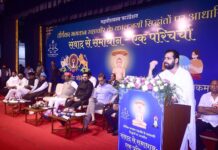 Archana Asthana
Archana Asthana
PALO ALTO, CA: Premiering at the Bay Area South Asian Film Festival at the Mountain View Center for Performing Arts in Palo Alto, directed by Vinita Sud Belani and authored by Madhuri Shekar, the play “Queen” promised scientific inquiry and academia drama amidst the moral conundrum of publishing flawed data for accolades.
The play tackles an ongoing need to identify the cause of Colony Collapse Disorder seen in honey bee populations, causing them to disappear in large numbers. The play is written as an insight into relationships between female colleagues, superiors, and a potential suitor; strife of the woman scientists constantly having to prove themselves and their research worth being taken seriously; the role of unconscious bias that may tar scientific findings; and ultimately aligning to adjustments in all of these domains.
With so many themes to uncover, it is understandable if it becomes overwhelming for first time theater artists, Nandini Ravindran (Sanam), and Stacy Fairley (Ariel) who display fleeting scenes of intrigue and drama, while at most other times, the story moves along in a one dimensional manner. Props are minimal, though changing multi-media backdrop offer some respite from the monotony of lengthy dialogues delivered with predictable mannerisms of high pitched voices and flailing hands in almost every scene.
While the story has a lot of depth, and myriad questions ranging from sexual harassment, gender typification, scientific bias, female egos at odds, and ultimately a resurgence of common sense and resurrection of the natural order of life, the exploration of this rich narrative is dealt with in a staccato manner. The pace further sagged with a narrow selection of sets, technical issues with lighting and sound, and long gaps in transitions.
Snehal Pachigar as suitor Arvind brings much needed humor and livens up the stage as a boorish date and a statistical consultant for Sonam in a bid for her to fix flawed data for her publication based on cutting edge research of past six years. Citing bias against Monsanto, the company manufacturing the neo nicotinamide pesticides ingested by the bees, and the alleged culprit for the collapse, Arvind reasons with Sanam to oversample previous data to maintain consistency and curtail the “threshold effect” which contradicts previous results.
Clearly this approach builds tension and pitches the researchers against each other as each searches for the right outcome. Grappling with moral ambiguity, Sanam finally makes a decision only to realize the complicit role her professor has played, knowing about the flaw in the data all along.
Finally, the collaborators unify in thought, refusing to tow the fraudulent line and stand up to the professor. Their discovery of a new queen in the hive poised to continue the bee colony, renews faith in the natural reset apparent in the world. Hopefully, savvy viewers will reflect on the state of the planet, our place and role in it, and steps to renew it for future generations.







